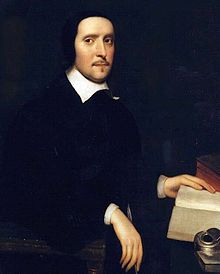Taylor on the Prayer Book's "wisdome and prudence" in rituals and ceremonies
And therefore there is reason to celebrate and honour the wisdome and prudence of the Church of England, which hath in all her offices retain'd but one ritual or ceremony that is not of Divine ordinance or Apostolical practice, and that is, the Cross in baptisme: which though it be a significant ceremony, and of no other use, yet as it is a compliance with the practice of all ancient Churches, so it is very innocent in it self, and being one and alone is in no regard troublesome or afflictive to those that understand her power and her liberty and her reason. I said, she hath one onely ceremony of her own appointment; for the Ring in marriage is the symbol of a civil and a religious contract, it is a pledge and custome of the nation, not of the religion: and those other circumstances of her worship, are but determinations of time and place and manner of a duty; they serve to other purposes besides signification, they were not made for that, but for order & decency, for which there is an Apostolical precept, and a natural reason, and an evident necessity, or a great convenience ... In other things we are to remember that figures and shadows were for the Old Testament, but light and manifestation is in the New ... we that walk in the light of the Gospel, and rejoyce in that light, have received from Christ and his Apostles an easier way of teaching the people.
Ductor dubitantium Book III, Chpt. IV, Rule XX
As a footnote, we might also consider how a successor of Taylor as Bishop of Down and Connor, Richard Mant (1823-1848), similarly emphasised the "prudence" of the Prayer Book "in the choice of the ceremonies".




Comments
Post a Comment